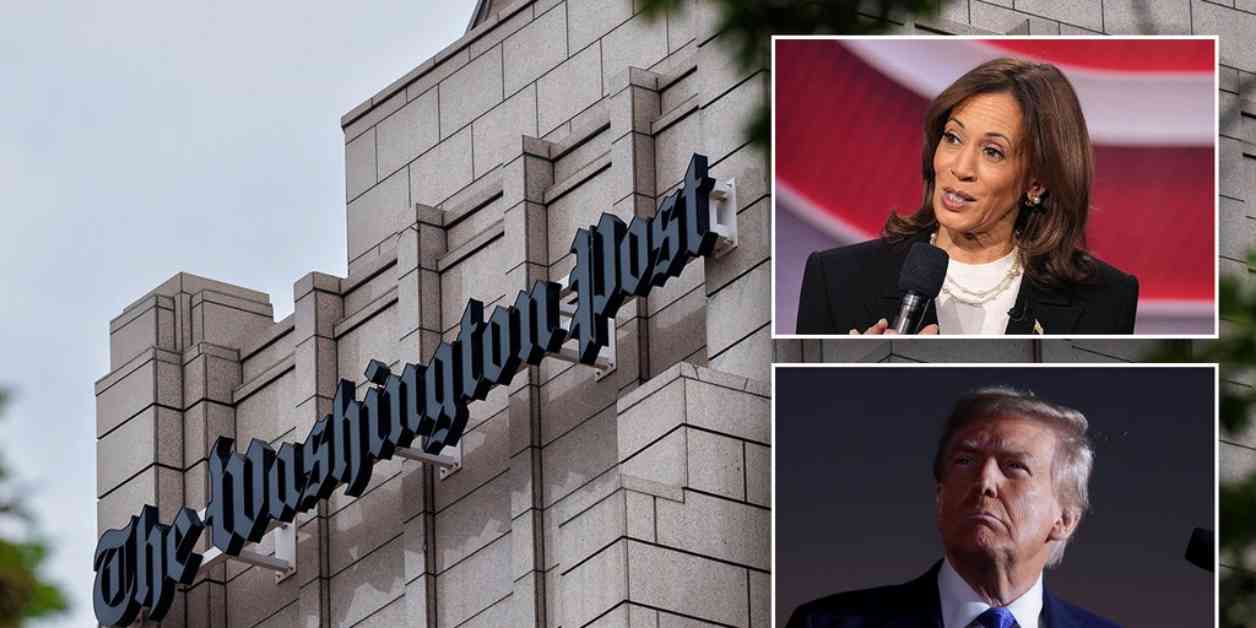The Washington Post editorial board, known for its liberal leanings, has made headlines by deciding not to endorse a candidate in the upcoming presidential election. This move is particularly surprising given the paper’s history of endorsing Democrats in past elections. The decision has sparked outrage among former Post staff members, columnists, and subscribers, with some even resigning in protest. The paper’s owner, Jeff Bezos, has been accused of interfering with independent journalism by forcing the decision not to endorse a candidate, reportedly due to concerns about Trump’s potential return to power.
The Post has a long history of criticizing Trump, calling him the worst president in modern history and unfit for office. Its editorials have consistently taken aim at Trump’s rhetoric, policies, and behavior. Despite not officially endorsing Kamala Harris, the paper has made it clear that it views her as a better candidate than Trump. However, a last-minute decision to remain neutral in the election has left many confused and frustrated.
Former Post media writer Paul Farhi has expressed confusion over the decision, questioning why the paper would choose not to endorse a candidate when its reporting and editorials have been critical of Trump. Farhi believes that an endorsement of Harris would have been in line with the paper’s values and would not have come as a surprise to readers.
The decision not to endorse a candidate has also raised questions about the role of media organizations in shaping public opinion. Some critics argue that by remaining neutral, the Post is failing to fulfill its duty to inform and educate the public about the issues at stake in the election. Others see the move as a missed opportunity to take a stand against what they perceive as a threat to democracy.
Despite the controversy, the Post’s decision not to endorse a candidate reflects a broader trend in media organizations grappling with how to navigate a deeply polarized political landscape. As the election draws near, the role of the media in shaping public opinion and holding those in power accountable remains a topic of intense debate.




